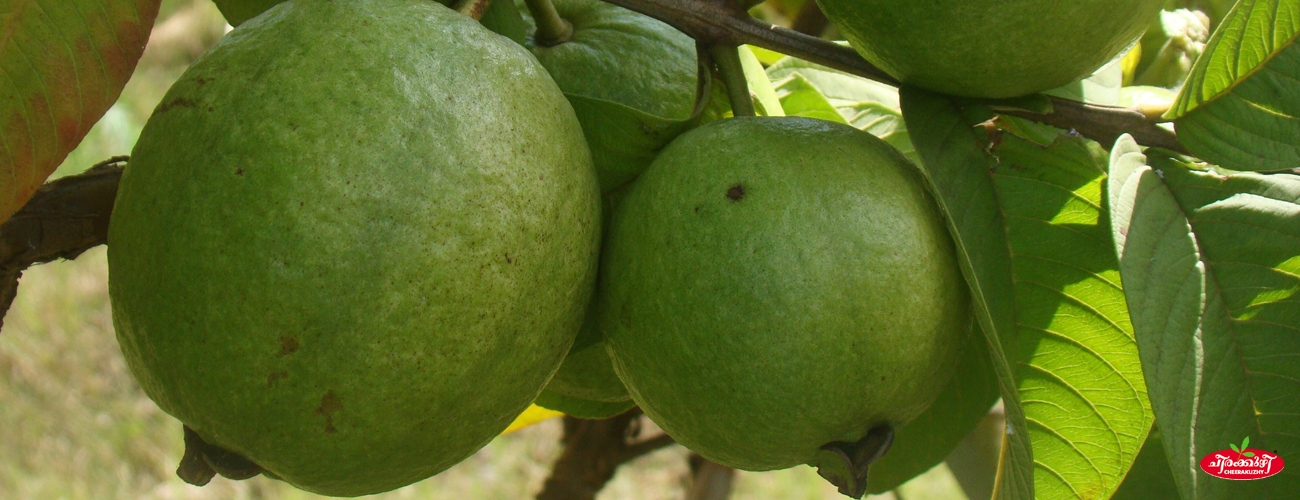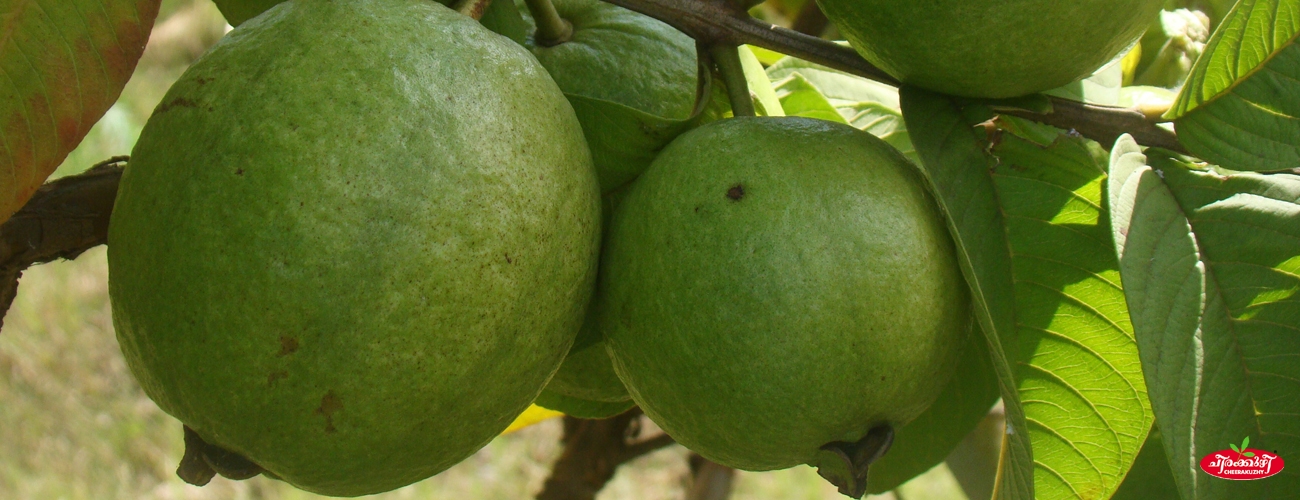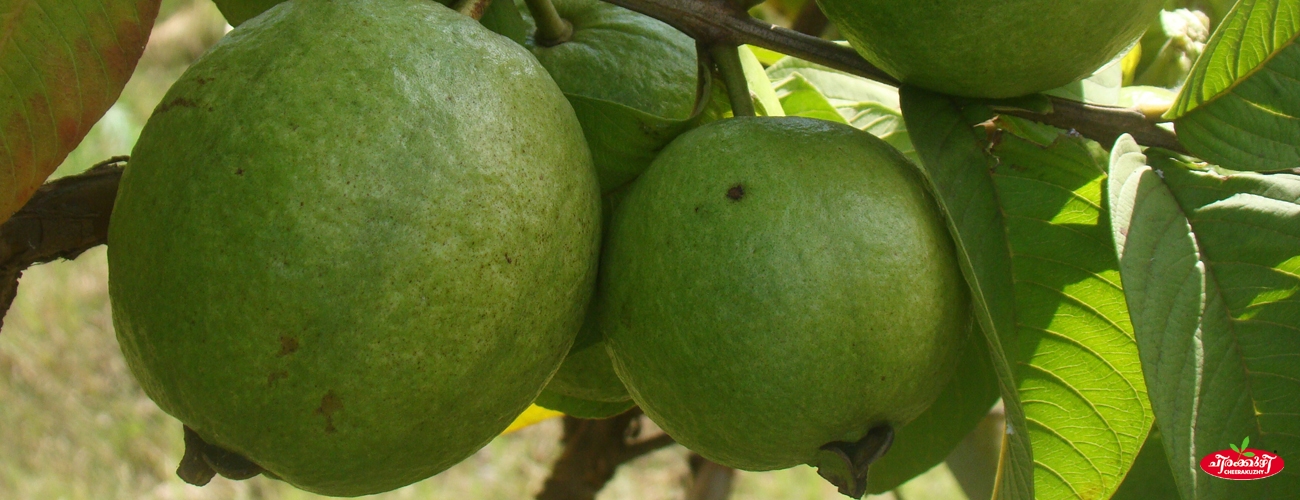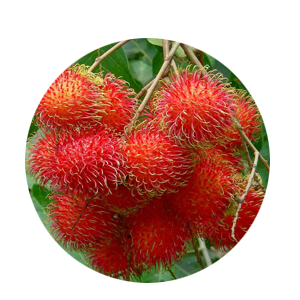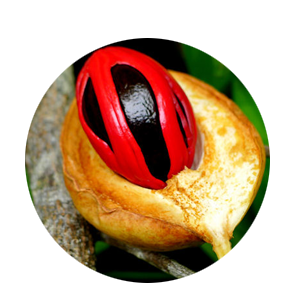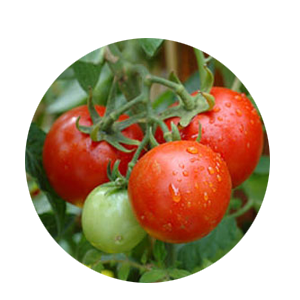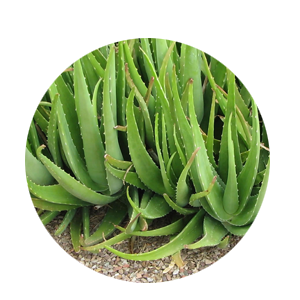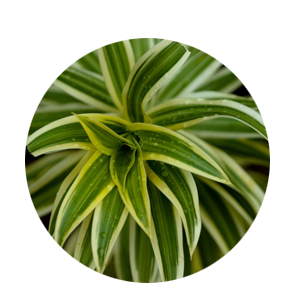Guava - violet - Seedling - (8x10 bag)

Item Description
General information about black guava Guava (Psidium guajava) is a tropical tree, producing sweet fruits which are eaten as a fruit or used as an ingredient in drinks, smoothies and desserts. The guava tree is a highly attractive tree. The leaves and flowers are both mildly fragrant and attractive. The tree produces white 1 inch size flowers. The fruits are about 5 inches in diameter; either oval, round or pear shaped and the ripe fruit has a rich pungent smell which spreads quickly in the house. The fruit has white, pink yellow flesh having seeds at its center. The taste of the fruit varies from sour to sweet, depending on its variety. The guava tree, if grown in ground will grow to a height up to 12 feet in tropical regions. The tree will grow to a smaller size in a container. The guava plants thrive in any soil with good drainage and full sun for best flowering and fruit production Health Benefits and Medicinal Uses of Guava Guava is termed as superfruits because of the presence of multiple health benefits nutrients-vitamin A, vitamin C, folic acid, potassium, copper, manganese, fibre, flavanoids, and other phytochemicals. It is surprising to know that guavas are having more vitamin C than oranges and more potassium than bananas. One guava contains 169 mg of vitamin C while an orange has only 69 mg. Guava is also used as guava jams and jellies. To know in details about the Top 15 Health and Medicinal Benefits of Guavas, go through the article. Medicinal benefits of guavas The different components of guavas such as fruits, barks, leaves are beneficial against of bacteria such as Micrococcus pyogenes and Escherichia coli. Fruits extract of guavas are useful against Salmonella. The fruits of guavas are also used as laxative. The vitamin C contents develop immune system which prevents fungal, bacterial and viral infections. The folate of guavas is good for pregnant women as it prevents defects in new born baby. Nutrition facts guava Guavas are rich in many vitamins, minerals and nutrients. Guava contains an antioxidant-vitamin E which helps preventing tissue damage from free radicals, and protects your body by releasing toxins. It is packed with nutrients such as calcium, potassium, vitamins C, A and B, folic acid, fiber, beta carotene, lycopene, phosphorous, iron, folate, flavonoids, isoflavonoids, polyphenols, etc. A test has confirmed that guava has the highest concentration of antioxidants than apples, pomegranates, Indian plums, mangoes, custard apples, bananas and grapes Guava for cancer treatment Guava is one of the important fruits which are abundant with cancer fighting antioxidants-Lycopene. The phytochemical-lycopene is good for treatment and combating of cancers such as prostate and breast cancer. The higher concentration of Lycopene fights with free radicals and prevents the risk of cancer and heart diseases. For cancer diseases, one should prefer to red fleshed guava over other varieties of guavas. The antioxidants also prevent the formation of cancerous tumours. The other nutrients such as vitamin A, vitamin C, fiber, flavonoids, beta-carotene, lutein and cryptoxanthin along with antioxidants also help to fight free radical cells which credit to cause cancer. Guava is plentiful of dietary fibre that aids in protecting of colon mucous which prevents toxins and cancer causing cells. Fruits rich in carotene such as guava are known to fight off lung and oral cancers too. Guava treats hypertension Guava is highly useful for the treatment of blood pressure, hypertension and heart disease. Guava contains adequate fiber and also hypoglycemic in nature which helps to control cholesterol levels and blood pressure. Guava improves heart health, prevents stroke by controlling high blood pressure and lowering cholesterol which is credited to the presence of moderate quantity of potassium. Guava for skin care and beauty Are you facing the problems of skin loosening, regular eating of guava works significantly in improving the texture and health of the skin? Guava enhances skin texture, tightening the loosening skin, and far better options than the nourishing lotions available in the market. The higher concentration of minerals and nutrients presence in guava makes the skin toned, fresh and wrinkle free. Guavas also help to revive the lost elasticity of the skin. The astringents present in guavas keep the skin away from blemishes, acne, wrinkles and pimples. Guava, being anti blemishes in nature, also known for anti aging properties. For skin beauty, you may also wash your face with the decoction of immature guava fruits and its leaves. Constipation home remedy through Guava Guava contains sufficient quantity of dietary fibre and roughage that are extremely beneficial for constipation piles and haemorrhoids. A 100 gram of guava contains about 36% of recommended daily intake of fiber. Guava seeds are powerful laxatives, help in chronic constipation and cleansing the digestive system. Dietary fibre helps in digestion and absorption of nutrients from food substances. Guavas contain higher amount of insoluble fibre that facilitate the movement of wastes from colon; clean the intestines and excretory system and help in treatment of constipation. Since guavas cleanse the intestine, so it is also an effective remedy for intestinal laziness. Weight Loss through guava Many of us don’t know how to lose weight naturally and effectively through diets and foods. Guavas are the important weight loss foods. Guavas are rich in dietary fiber, minerals and vitamins with no cholesterol and low carbohydrate; give you the satisfaction of fullness. If you want to lose your weight naturally, eat one or two guava at lunch time. It is sufficient to give you energy till the evening. Guava leaves are also considered as weight loss diet. The adequate roughage keeps your stomach full, reduces the desire of more eating thereby helps to lose weight from tummy and other regions. Diabetes treatment and guava A study was conducted by Medicinal Research Laboratory, Allahabad University on mice showed that guava fruits and leaves have the power to lower blood sugar levels. It showed positive results when the fruit was taken without skin. In Japan, guava leaf tea is taken to promote health and prevents diabetes as this helps to absorb maltose and sucrose thereby control blood sugar levels. In China, peeled guavas are also taken to treat diabetes since the ancient times. Guava for toothache Guava contains greater percentage of vitamin C than oranges, about four times than oranges. Having a higher concentration of vitamin C, it is useful in the treatment of bleeding and swollen gums. The astringents contents of guava leave juice are a useful remedy for toothache pain, swollen gums and ulcers. The gargling of guava leaves is an important toothache remedy. The properly masticated guava stopped the blood leakage from gums. Guava juice is one of the important home remedies to treat gums problems. Guava is rich in folate that prevents bad breath which is responsible for gum disease gingivitis. Guava for cough and cold Guava leaves juices are beneficial in curing and treating cough and cold. Guava juice reduces lungs congestion & mucous formation, and makes the respiratory tract infection free because of its rich source of Vitamin C and iron. These nutrients are also helpful to inhibit influenza virus infection. Guavas juices also helpful to fight dengue fever. Guava for diarrhea and dysentery Guava is beneficial in the treatment of diarrhoea as the fruit inhibits microbial growth, releases excessive mucous from the intestine thereby helps to bind loose stools. The fruits are alkaline in nature that prevent the growth of bacteria, and having disinfectant properties. The phytochemical such as carotenoids, vitamin C and potassium acts like as disinfectants. Chewing guava leaves remove extra mucus from the intestine. Drinking guava leaf tea results in fewer stools. Guava barks are also used as astringents to treat diarrhoea among children. Guava leaf extract is useful in curing of gastrointestinal disorders because of containing quercetin and flavonoids. Guava for heart disease treatment The extract of guava is considered as proper functioning of heart and heart beat. Guava combats free radicals produced after metabolism and helps to check age related diseases such as Alzheimers, cataracts, heart disease and rheumatoid arthritis Medicinal benefits of guavas The different components of guavas such as fruits, barks, leaves are beneficial against of bacteria such as Micrococcus pyogenes and Escherichia coli. Fruits extract of guavas are useful against Salmonella. The fruits of guavas are also used as laxative. The vitamin C contents develop immune system which prevents fungal, bacterial and viral infections. The folate of guavas is good for pregnant women as it prevents defects in new born baby. Nutrition facts guava Guavas are rich in many vitamins, minerals and nutrients. Guava contains an antioxidant-vitamin E which helps preventing tissue damage from free radicals, and protects your body by releasing toxins. It is packed with nutrients such as calcium, potassium, vitamins C, A and B, folic acid, fiber, beta carotene, lycopene, phosphorous, iron, folate, flavonoids, isoflavonoids, polyphenols, etc. A test has confirmed that guava has the highest concentration of antioxidants than apples, pomegranates, Indian plums, mangoes, custard apples, bananas and grapes Guava for acidity treatment Guavas act like as alkanity inside the body. The basicity properties of guavas are used in the treatment of acidity and hyperacidity. Guavas juices are helpful in releasing of toxins from the body, especially from the stomach.
Maintanance, Disease Management And Yielding
Maintenance of the plant Once a plantation has been established, the work should not be considered finished. It will be necessary, for example, to protect the plantation against weather, fire, insects and fungi, and animals. A variety of cultural treatments also may be required to meet the purpose of the plantation. Guava plant needs full sun to part shade to grow, however, it cannot withstand too much heat.The guava plants have very little tolerance for cold. The plant is very frost tender and the matured tree will drop all the leaves in winter, while the young may die. The new leaves start to grow from the beginning of spring. Fertilizer fertilizers in small quantity (generally below 100gm) after two to three months of planting with sufficient irrigation. Fertilize growing guavas every one to two months while young and then three to four times per year as the tree matures. Guava trees need a high amount of nitrogen, phosphoric acid and potash, along with some magnesium for maximum fruit production. An example is a formula of 6-6-6-2, worked into soils just prior to the onset of the growing season and then evenly spaced out three times during the growth period. Water frequently after planting and then keep mature trees moderately moist during the blooming and fruiting seasons. Once established, caring for a guava fruit tree is similar to any fruiting tree care.Young trees benefit from fertilizer application with the type an amount varying with area and soil type. Watering and weed controlling 1.Guavas prefer regular deep root watering, allow the soil to dry out somewhat between waterings. Provide regular water during the growing season, and reduce watering during the winter. Apply water at the base of the tree, avoiding its foliage getting wet to prevent fungal disease. 2.The older branches of the guava tree produce larger size guava fruit. So to promote branch growth, the tree must receive regular water. 3.Guava tree is heavy feeder, so it should be fertilized every 1-2 months when it is young; thereafter 3-4 times a year. 4.Guava trees need a fertilizer high in nitrogen, phosphorus, potash and some magnesium for maximum fruit production. Mix 6-6-6-2 fertilizer into soils beginning of the growing season and then 3-4 times during the growth period. 5.Apply a fertilizer high in potassium to increase fruit production. I feed my guava plant with a liquid fertilizer throughout the growing season. 6.Guava trees become iron deficient in alkaline and high pH soil. Fertilize 1-2 times with iron sulphate each year. 7.Always water your guava plant after fertilizing to minimize the risk of burns. Pests and Diseases management 1.Young guava are attacked by a number of pests including aphids, guava white fly, mealy bugs, moth, scale and thrips. Treat early. I cover the fruits with a paper bag to prevent fruit fly. 2.The guava tree is attacked by a number of diseases like anthrcnose, red alga, and leaf spots. Pruning the tree to increase air circulation will be beneficial. Regular copper spray, pest oil spray or insecticidal soap can control the disease. 3.Sometimes, ants crawling on the guavas may be problem. Use Boric Acid Ant Baits to control ants. Pruning Prune the new plant at 1-2 feet length to produce new lateral branches. Allow such 3-4 branches to grow to 2-3 feet. Then cut the tips of these branches to grow more branches. Remove the weak branches. The tree in this way will become dense with a good canopy. Harvest The guava fruit matures in 2-4 months after the flowers bloom. The fruit remain hard and green but changes color and becomes softer when it is ripe. Fruits picked green will ripen when stored at room temperature. (Fruit Ripening with Ethylene)
- Propogation Method : Seeds & Bulbs
- Plant Climate : Sub Tropical, Normal, Hot, Cool, Tropical
- Plant Height : 2-3 feet
- Plant Weight : 3.5kg
- Plant Polybagsize : 8x10
Related Images
- Botanical Name : Psidium Guajava
- Malayalam Name : Perakka
- English Name : Guava
Black sweety
Planting Instructions
PLANT THE RIGHT TREE AT RIGHT PLACE Growing space both above and below ground should be considered when selecting a tree to plant. Too often allowances are not made for the increased size of the tree when it matures. Most problems can be avoided by selecting the proper tree species for the available planting space. GENERAL TIPS 1. Plant at least 3 meter from main overhead utility wires on street or to your home. 2. Plant at least 3 meter from a building. 3. Plant at least 2 meter from sidewalks, driveways, patios and fences. 4. Plant at least 2 meter from other large trees. 5. Plant at least 1 meter from small trees. 6. Prioritize your tree planting with the sun’s direction to maximize shade by planting on the southwestern and western sides of your home BASIC PARAMETERS TO PLANT A GUAVA 1)SOIL: Guava is very hardy. It can thrive on all types of soil from alluvial to lateric. However, it is sensitive to waterlogging. It can be grown on heavier but well drained soil. Deep friable and well-drained soils are the best. The top soil should be rich for better stand. Soil pH range of 4.5 to 8.2 is congenial for guava but saline or alkaline soils are unsuitable. the tree should be planted in well-drained soil where its roots have room to spread. Wide range of soils and will grow in both sandy or rocky soils in addition to loams, preferring a pH of 4.5–7 but tolerating alkaline soil to to pH 8.5. 2.Planting Distance : For Commercial Plantation :- Standard spacing for guava is , 6m x 6m, accommodating 112 plants /acre. However, it is commonly planted at a distance of 3.6 m to 5.4m Traditional planting spaces in some parts of country range even upto 5.4 to 7.0m By increasing the plant density, productivity can be increased. Although there would be reduction in size of fruits, the number of fruits per plant remains more or less similar. For Home Garden:-In a home garden generally we are planting one or two guava fruit along with other species of fruit plants. So it is better to keep minimum 3 meter distance from other plants to plant a guava 3. Pit size : Minimum 60cm width X 60cm Breadth X 60cm depth 4. Sunlight : 100% sunlight is best but can grow up to 50 % shade. Temperatures between 15 and 45°C (59–113°F). 5. Watering: During dry weather, initially water the plant once in two days and after one month of planting water every 7 to 10 days during the first year. Should be watered every 2 days after planting for the first week and then once a week for the following few months. TEN TIPS FOR PLANTING A GUAVA 1. Dig a hole/pit 3 to 4 times wider than the container (Normally 60cm X 60cm X 60cm is recommended). Fill the pit with top fertile soil to allow for proper root growth. Avoid clay type soil to refill the pit. 2. Add 250 gm Rock Phosphate or Born Meal and 3 to 5 kg Cow dung or compost in the top soil of the pit and mix it thoroughly (Thorough mixing of manure with soil is very important because direct contact of manure with the roots of the plant will cause the damage of roots and plant). 3. Make a small hole in the pit and carefully remove the plant from the container/pot or poly bag keeping the soil around the roots intact. Don‘t yank the plant out of the pot or poly bag as this can separate the roots from the tree. Poly bags can be easily removed by cutting it by a knife and pots can be removed easily by hitting slightly at the top edge of the pot. 4. Set the plant in the middle of the hole. Avoid planting the tree too deep. Keep the base of the trunk is slightly above ground level. Using some soil, secure the tree in a straight position, then fill and firmly pack the hole with the original soil, making sure there aren‘t any air pockets. 5. If the plant is Grafted or Budded make sure the grafted or budded portion of the plant is above the soil. Do not allow to touch the grafted or budded portion in the soil as it burns the skin of the plant. 6. Create a water-holding basin around the pit and give the plant a good watering. After the water has soaked in, spread protective mulch 2–4 inches deep in a 3-foot diameter area around the base of the tree, but not touching the trunk. Also provide a stich as a support for the plant, if needed. 7. The soil and mulch around your plant should be kept moist but not soggy. During dry weather, initially water the plant once in two days and after one month of planting water every 7 to 10 days during the first year. 8. Remove any tags and labels from the tree as these will affect the tree as it grows. You may need to prune any broken or dead branches. For Budded or Grafted plants it is very important that do not allow the growth of off shoots under the grafted/budded portion. Allow the growth of budded/grafted scions only. 9. Do not use chemical fertilizer or any other chemicals on your newly planted trees. Such products will kill your young trees. If needed you can add chemical



